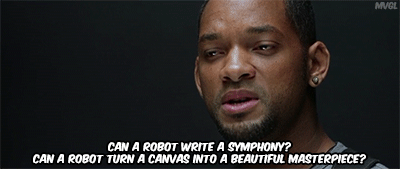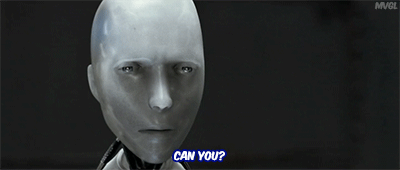misohead:moriartythecrowned:michaeldirnt:littlemissmutant:I love this because this is the argument e
misohead:moriartythecrowned:michaeldirnt:littlemissmutant:I love this because this is the argument every bioethicist makes about why people with disabilities shouldn’t exist.“They won’t be Beethoven or Monet! They won’t write beautiful poetry! They won’t excel in a sport! Those things are not options for them!”A) you’re wrong but also B) your argument is easily demolished with a two-word rebuttal delivered by a fictional robotthe funny thing is that Beethoven was disabledSo was Monet, he was near-sighted and his eyesight continued to get worse, and he was basically blind by his death. He painted his Water Lilies paintings after he lost his eyesight almost completely.In my own field - two of the most prolific mathematicians were both disabled.The mathematician who wrote the most pages of math, Leonhard Euler, did most of his work after he went blind. He laid the foundations for so many whole new areas of math.The mathematician who wrote the most math papers (not pages), Paul Erdős, was never able to live independently, manage his own finances, drive, prepare his own food, or do wash. It took him a very long time to learn to tie his shoes. But he was a brilliant mathematician - he just went from place to place doing math with people and living with them while they worked on papers together and they helped him with his daily activities. I suspect that he was autistic - if not autistic, something along those lines.Not that disabled people have to do things like this to be worth it. Sometimes I feel not much more capable than Erdős, but my math ability is nowhere near his, and that is okay too.But yeah, let’s not assume we can’t do stuff either!(Also, note that these two mathematicians both succeeded because of societal support. Euler had enough money and fame by the time he went completely blind, that he could hire a lot of people to read to him, and transcribe what he was saying, etc. Erdős’ math skills were valued enough that people were willing to help him with life skills in order to have the privilege of doing math with him. But everyone deserves that kind of support, regardless of whether they are rich and famous or whether they have a skill that society deems valuable.)Yeah, there seems to be a strange expectation, that a disabled person MUST have and excel beyond the genius level at some valuable skill to have their existence (and therefore continous strain on society) justiffable. Like, if you look at the characters with disability in shows or movies, they are either useless pity props or genius masterminds, no in-between. While it might not be the source of the problem, it’s symptomatic. Somehow, disabled are kept to higher standard of expectations than non-disabled - while you would not regard a person’s life wasted, if they never write a symphony or turn a canvas into masterpiece, a disabled person MUST do something extraordinary with their life - otherwise they’re just a waste of space and time and effort. But what if you’re not talented enough to be genius, only just so - like everyone else. What then? Why you’re not good enough to live, while others can just be? Why do you have to pay higher price for being considered part of society, because of the things you can do nothing about to change? Why do I have to feel guilty for how much support I need and how little I can give back? And I’m sorry for saying this all - it’s just how I feel everyday. -- source link
#disability#pity party


